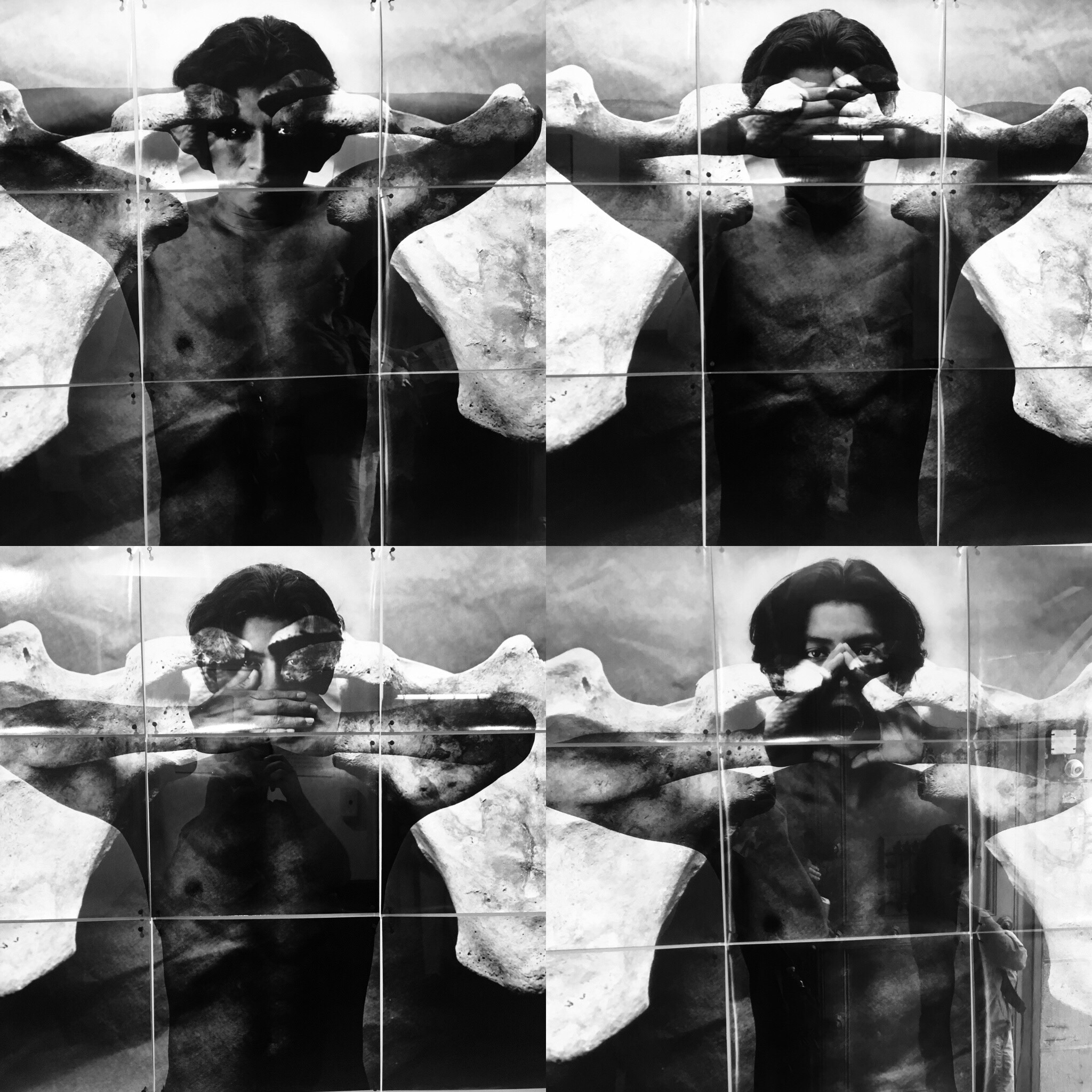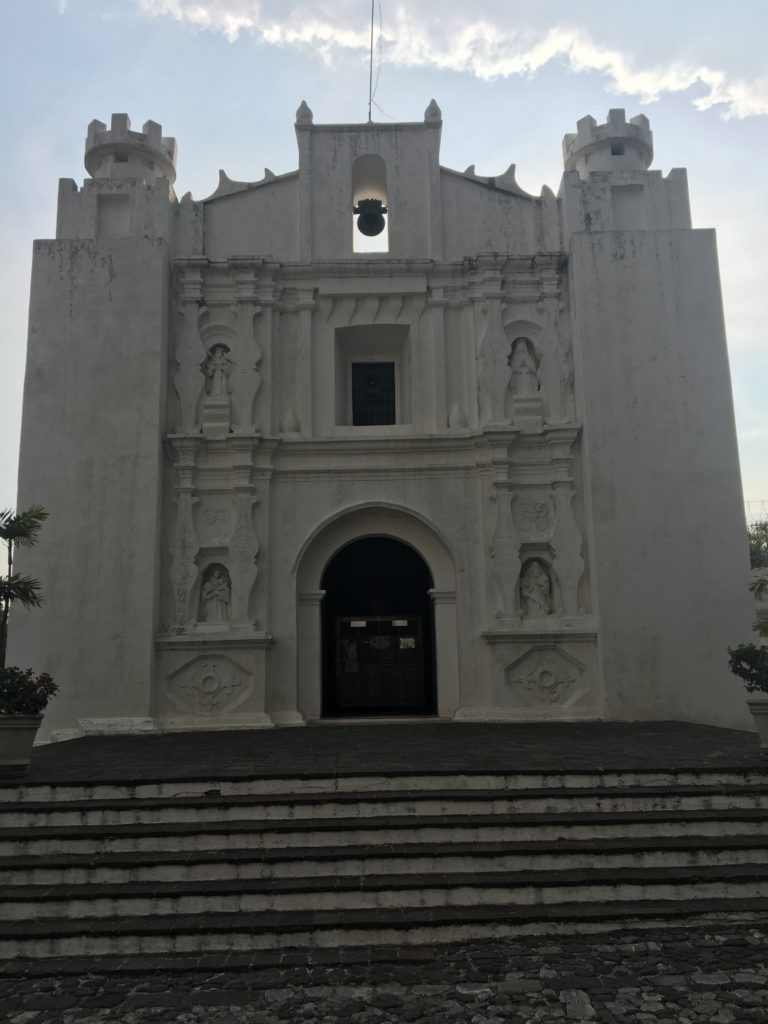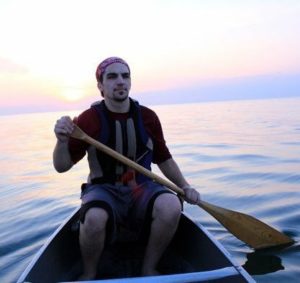Central America Travel Seminar: Illiteracy, human rights, and deportation

BY GERAN LORRAINE
We began our day learning about the women’s ministry of CEDEPCA, an educational non-profit that works to increase the Christian formation of the women of Guatemala so that they can become leaders in their communities. The illiteracy rate among Guatemalan women is 80-percent. CEDEPCA has adapted its programs to provide space for those who can’t read or write to still be able to learn. As an example, they allow students to express theological and complex thought through drawings. Its three main principles are: Woman are human-beings, they do reflect the image of God, and they deserve equality and equity. There is a great deal of progress that still must be made, but CEDEPCA’s work is helping to further liberate women.
We then went to the San Sebastián Parish. This is the Church of Bishop Juan Gerardi, who was killed for his work to reveal the truth of the Guatemalan Civil War. Days prior to his death, the group he worked with (REHMI) published a report of the war atrocities. The report was called “Guatemala: Nunca Mas” (Guatemala: Never Again). He was killed while entering his parish for the evening by the same forces that the report had named as perpetrators of war crimes. We spent time in the parish where he lost his life. There is now a mural (top photo) that commemorates his life and journey until martyrdom. There was a palpable feeling of both great sorrow and hope.
We spent some time in the Archbishop’s Office for Human Rights (ODHA). We met a woman named Patty who shared with us the numerous programs that ODHA runs, that work to care for the least of these. This work carries on the legacy of Bishop Gerardi and has a strong focus on women and children’s rights.
Afterward, we went to Casa de Migrante, which is an organization that works with migrants. They provide a place for migrants to eat and sleep. They also have doctors, dentists, lawyers, psychologists, social workers, and partner institutions available to help any migrant that comes to them. Our host told us that prior to June 2017 the number of migrants they served was fairly steady. However, they have recently experienced a growth in numbers of the people they serve. This is partly due to increased violence in Nicaragua and also due to the increase in deportation from the United States. Prior to June 2017, they had six-to-nine flights a week arrive from the United States with people who were deported. Currently, nine-to-11 flights are arriving weekly. Each flight carries 100-135 people (men and women). Those numbers do not reflect the number of families who are being deported.
We learned about the exploitation of individuals migrating and heard stories of terror from some of the world’s most vulnerable people. Often, the perpetrator of this terror was the United States government. We spoke with an individual who had recently been deported from the U.S. and he shared the details of the trauma that he experienced in U.S. detention. We also learned that Casa de Migrante currently was housing 15 people with a capacity of 90 people. They have, at times, exceeded 90 people by placing mattresses on the ground throughout the facility. Our host told us that last week, 34 people a day stayed at the Casa. Most of those affected by violence while migrating are women and children. Casa de Migrante believes that human beings have the right to choose where they want to live and how they want to improve their lives. More so, human beings have the right to safety and dignity. It is clear to see that much work needs to be done to make that true, especially in the United States of America.

Later, we made an impromptu stop at one of the city’s oldest churches which offers beautiful vistas of Guatemala City. We then returned to our lodging to eat and reflect on the day.
Geran Lorraine is a Master of Divinity student at Union.









